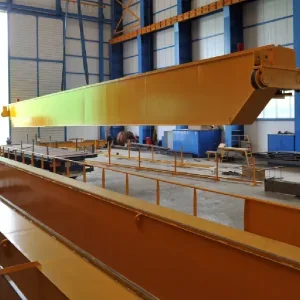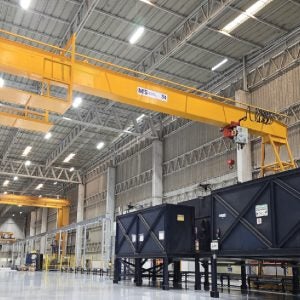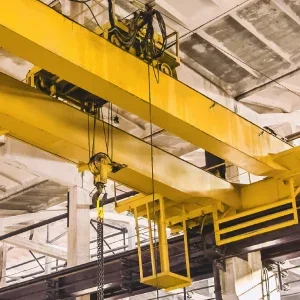Two new hoists were installed in each crane system, the lifting speeds of which have increased from up to 12.5m/min at nominal load to – thanks to the addition of frequency inverters – up to 22m/min, although that is when operating with partial loads. All speeds are stepless due to the frequency control, whereas before the upgrade only pole-changing two-step lifting and travelling was possible.
In addition, components such as the wheel bogies with crane travel drives, trolley travel drives, conductor line, radio control system with transmitter and master control, back-up cable control system and the crane control system have been upgraded.
The cranes are also equipped with a Kuli remote maintenance solution, which establishes an internet connection with the crane's control system to, for example, change the settings of the inverters to adjust speeds or to reduce load oscillation. It is also possible to detect various causes of malfunctions, such as motor overloads, or defects such as ground insulation on power lines.
Further technology includes the cranes’ ability to reduce energy consumption by recovering energy from the braking system and feeding it back into the power grid.
Speaking at the time of the launch of the technology, Oliver Riese, export manager at Kuli, said: “We are using the nascent energy during the brake application… and leading it back to the grid instead of wasting it as heat.
“More and more companies are promoting their environmental engagement and our system fits perfectly to that strategy.”
Kuli claims the system for its cranes and electric wire rope hoists can cut energy consumption by up to 60%.
The cranes, which date back to 1995, each have a span of approximately 18m and two cantilevered trolleys, each with a capacity of 3.2 tonnes and a total load capacity of 6.3 tonnes.






